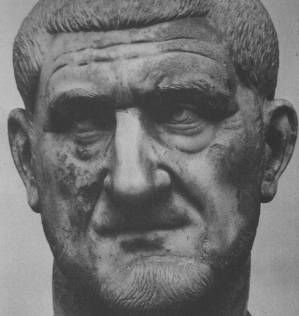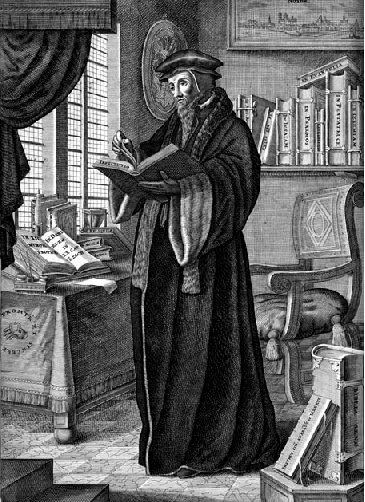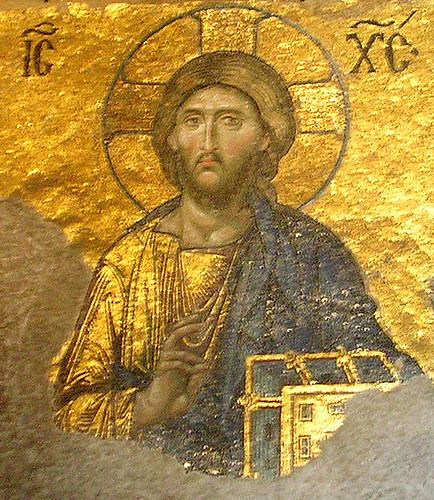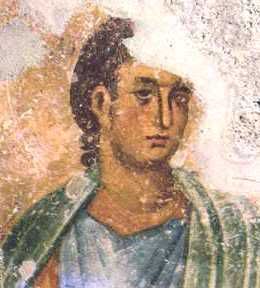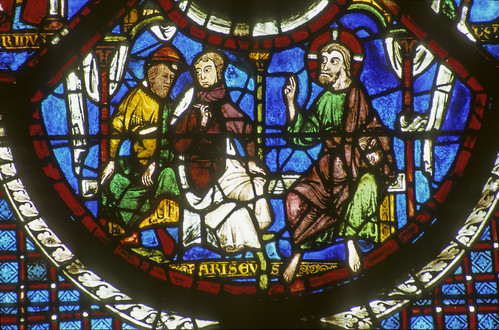
In Palestine during Jesus' day, the temple had become corrupted by the ruling elite (scribes, priests, pharisees) and they were oppressing the rest of the Jews (peasants, outcasts) and collaborating with Rome for their own wealth. Jesus, having grown up as a stone mason (not carpenter - wrong definition of Greek word within the historical context) with his father Joseph building Herod's city, approaches the temple in Mark 11 to condemn the ruling elite and the temple system they had created.
Jesus starts to overturn the money tables which are being used to the gain of the priests on Passover, and then he quotes his famous line. The first part says "My house shall be called a house of prayer for all nations". This is found in Isaiah 56 when God is calling the outcasts of Israel and the foreigner into his house. This is emphasized in 56:6-7 when God says that foreigners will be included if they serve him and 56:8 when it says that He gathers the outcasts of Israel. The ruling elite were keeping this from happening with their greed and legalism. Jesus then accuses them of making it into a den of bandits. The background to this is found in Jeremiah 7:1-15 when the priests murder, steal, and harm the Israelites and then take refuge in the temple for security. Jeremiah then condemns them. This is what the elite were doing, and Jesus is prophesying their condemnation.
In Mark 11:12-14, Jesus curses a fig tree for not bearing fruit in season to never bear fruit again. This is before the temple incident, so it is like he is prophesying of the temple system's condemnation. After the temple incident, the fig tree is withered to the roots. Jesus then says that if you have enough faith, you can say to this mountain, "Be taken up and thrown into the sea", and it will be done. When he said "this mountain", he was probably referring to the mount that the temple stood upon. This was all prophetic of the destruction of the temple system and condemnation of the ruling elite.
After this Jesus tells the parable of the tenants. The workers of a vineyard do not do their job, and when the owner sends his son, they kill him. The vineyard is of course taken away from the people who work it. The vineyard is the kingdom of God, the workers are the ruling elite (priests, scribes, pharisees), the owner is Jesus' Father, and the son is of course Jesus. This is prophetic of the kingdom of God being taken away from the elite, because they are not keeping it and bearing fruit, which means loving and serving their neighbors equally - which is what Jesus' teachings are many times about.
He teaches these things to the outcasts of Israel (tax collectors, prostitutes, etc) because the kingdom will be given to them. The idea of the vineyard is taken from Isaiah 5, where Israel is described as a vineyard, and because it doesn't bear fruit, God plans to destroy it. These passages provide the context and basis of John 15. This I will discuss in an upcoming blog. It also helps explain Romans 11.
Matthew 11 says that until now the kingdom suffers violence, and the violent take it by force. Matthew 12 says that Jesus will bring justice to the Gentiles, which means inclusion in the kingdom as prophesied in Isaiah. Matthew 22 tells the parable of the wedding feast, where the elite are not allowed into the feast because they do not wear the proper garments, which refers to putting on Jesus' righteousness, so instead the outcasts are invited.
Luke 13:28-30 and Matthew 8:11-12 says that many will come from the east and west and north and south and recline at the table in the kingdom of God with Abraham, Isaac, and Jacob. It says that the sons of the kingdom will be casted out where there will be weeping and gnashing of teeth. The people from the east and west are the foreigners and outcasts, and the sons of the kingdom are the elite.
As Matthew 5:3 says, "Blessed are the poor in spirit: for theirs is the kingdom of heaven.



